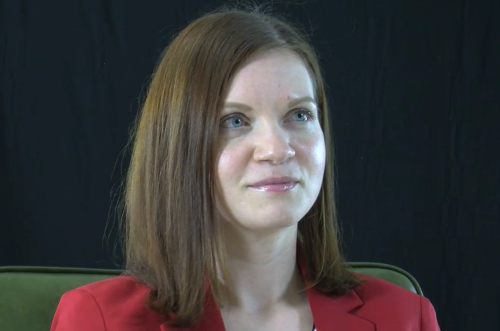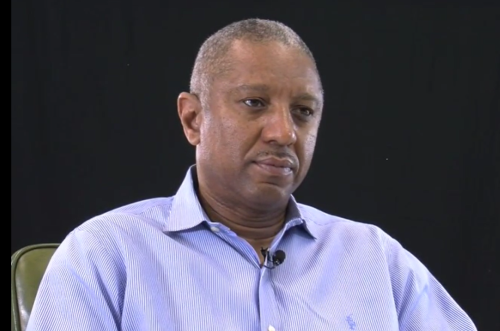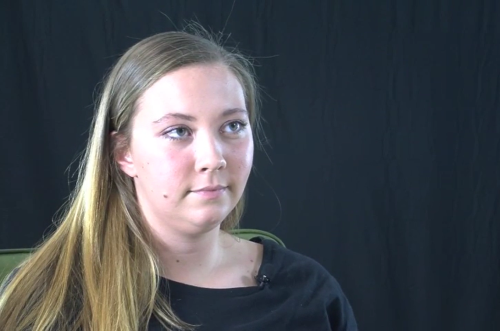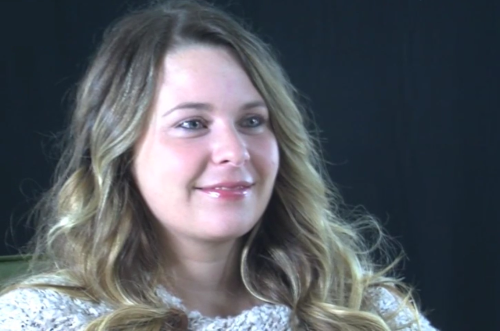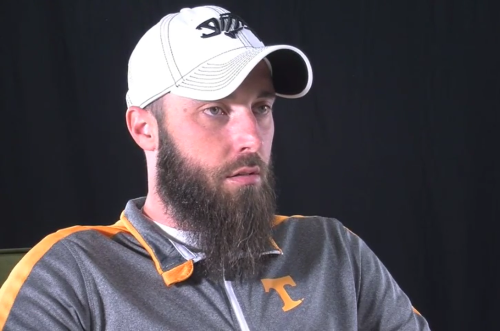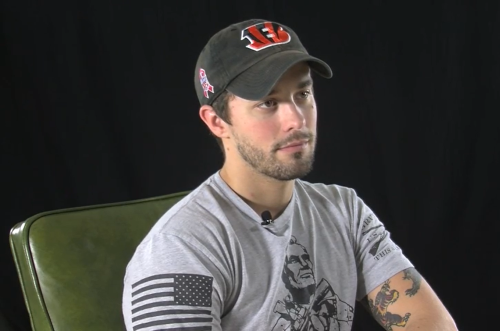In Their Own Words
The following interviews were conducted at the Digital Media Studio at Lehigh University. They all follow a general arc from enlistment, to training, military service, and discharge.
Nikkole Weiss works with veterans suffering from PTSD at Overton Brooks VA Hospital. She earned her bachelor’s degree from Fayetteville State University in 2011 and her master’s from the University of Southern California in 2014, with a specialization in military social work and Cognitive Processing Therapy. In this interview, she discusses PTSD and the methods by which it can be treated. She also discusses some of the major challenges facing veterans as they transition to civilian life, as well as the ways civilians and the VA can assist veterans during this process. She urges veterans to seek preventative care as early as possible and to reach out to both professionals and loved ones for support.
John Thomas (1962-) enlisted in the United States Air Force in 1986 and retired at the rank of Chief Master Sergeant in 2016. Initially trained as a Nuclear Armament Systems Specialist, John later worked as a Wing Weapons Manager in aircraft weapons loading. He was first stationed at Barksdale Air Force Base in Louisiana and later deployed to Korea, Japan, and Qatar before retiring in Florida. John describes his military service as incredibly formative and gratifying because it taught him discipline, perseverance, and camaraderie. He now works with young people in the Air Force JROTC so that he may impart the same life skills and mental fortitude he learned in the military to prospective service members.
Rebecca Morris (1995-) joined the United States Navy in 2014. Upon completing basic training, she attended Navy A and C School, where she was trained in both radio communication and Automatic Data Processing (ADP) for IT Services. She was first stationed in Burlington, Washington and later deployed aboard the USS John C. Stennis. However, her tour was short-lived once she learned she was pregnant. Rebecca describes the mixed emotions she felt during this time, the sexism she experienced from her fellow seamen, and her decision to separate from the Navy in 2017. Rebecca explains that, despite the benefits provided by the military, she is unsure whether or not she would enlist again and recommends that anyone considering joining the military thoroughly research the decision first.
Stephanie Young (1991- ) joined the Navy as a means of gaining personal independence. She trained as a sea-faring air traffic controller in Pensacola, Florida. Upon completion she was assigned to serve on the USS Nimitz out of Everett, Washington. While her experiences shattered her illusions of what life would be like on a Navy ship, she does not regret her experiences. She says that her service has provided her the means to continue school and provide a life for her daughter. She is currently pursuing a degree in early education and looks forward to graduation.
Jason Tipler (1985-) enlisted in the United States Air Force in 2003 and retired from service in 2012. He was initially trained as an Air Transportation Specialist and stationed at Little Rock Air Force Base. He later applied for a position in a Contingency Response Group (CRG) stationed in Ramstein, Germany. From there, he deployed to fifty-two countries over the span of four years. In this interview, Jason talks about his fast-paced lifestyle and while overseas and the excitement he felt. He also discusses the drawbacks of his military service, including the toll on his mental and physical health. Overall, however, Jason says that the military gave him some of the best experiences in his life and he encourages any who are interested in joining to do so.
Chad Beall (1992-) enlisted the United States Navy in 2013 and served as a Boatswain’s Mate aboard the USS Rodney M. Davisand USS Mahan. Although he enjoyed his time in the Navy, Chad chose to separate in 2017 when he was unable to retain his rate or find another that suited him. Chad describes the lack of assistance available to him during the separation process, as well as his struggle to adapt to civilian life and find employment. Despite these hardships, Chad explains that he would choose to serve again because his service taught him valuable professional skills and prepared him for life after the military. He clarifies, however, that he does not believe the military is suitable for every individual and that prospective enlistees should consider their options before joining.

